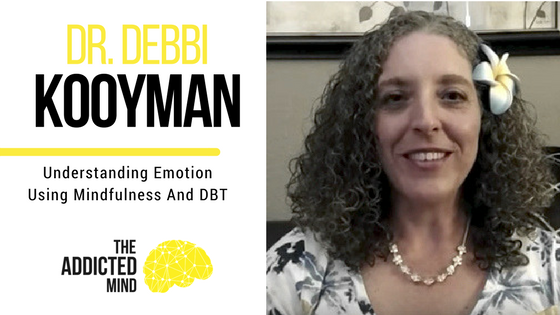“Dialectical Behavioral Therapy” is one of the many tools we have tucked away in their tool belt to help people overcome their addiction, trauma, and behavioral disorders. While it might sound complicated at first glance, the true power of DBT comes from its practical applications.
This week, we take a close look at DBT and discover a simple, non-judgmental way to understand human emotions.Mindfulness, practical action steps, and a new understanding of the brain combine to make DBT a powerful tool to beat addiction.
This week’s guest is Dr. Debbie Kooyman. Her 20 years of work in Psychology have shown her just how important it is for adults dealing with addiction, abuse, and trauma to be able to take a step back from their emotions and learn how to think again. Dr. Kooyman shares her wisdom in this episode and dispels some misconceptions you might have about DBT.
- Specializes in adults who were abused as children. DBT is a resource for people dealing with addiction as well as those dealing with abuse.
- Dispelling the myth of using DBT. It’s not only for Borderline Personality Disorder.
- A breakdown of the three components: Dialectical, Behavioral, and Therapy.
- How we can move between the competing needs of companionship and alone time.
- Using DBT to give clients concrete tools to beat addiction.
- Normalizing your experiences to conquer addiction.
- The difference between primary and secondary emotions.
- The mindfulness component of DBT—knowing how to pay attention to the moment without judgment.
- Learning to change the way our brains operate.

